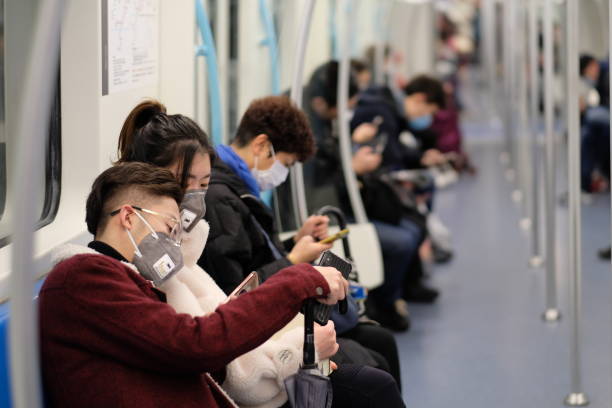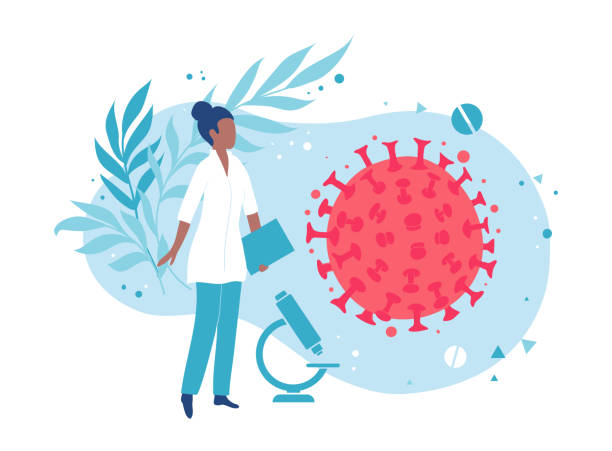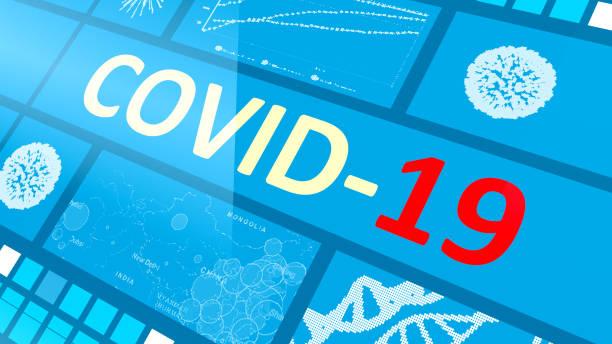Title: Coronavirus Prevention: Protecting Yourself and Others
In the wake of the global COVID-19 pandemic, understanding effective coronavirus prevention measures has become crucial for safeguarding individual and public health. The virus, officially named SARS-CoV-2, spreads primarily through respiratory droplets from an infected person and can lead to the potentially severe respiratory illness known as COVID-19. As the situation continues to evolve, staying informed about the latest guidelines and strategies for prevention is paramount. This article provides a comprehensive overview of coronavirus prevention techniques and emphasizes the importance of collective efforts in curbing the spread of the virus.
1. Personal Hygiene: The First Line of Defense
Maintaining proper personal hygiene is one of the fundamental steps in preventing coronavirus transmission. Regular and thorough handwashing with soap and water for at least 20 seconds helps remove the virus from your hands. Hand sanitizers with at least 60% alcohol can be used when soap and water are not readily available. Avoid touching your face, especially your eyes, nose, and mouth, as these are potential entry points for the virus.
2. Wearing Face Masks: A Barrier Against Transmission
Face masks have emerged as an essential tool in reducing the spread of the virus. Wearing a mask, especially in crowded or enclosed spaces, helps prevent respiratory droplets containing the virus from being released into the air and being inhaled by others. Masks also offer some degree of protection to the wearer. N95 respirators are recommended for healthcare workers, while the general public can use cloth masks or surgical masks.
3. Social Distancing: Limiting Close Contact
Maintaining a safe distance from others is critical to prevent the virus's spread. The recommended distance is typically around six feet (approximately two meters). Avoiding large gatherings and crowded places helps reduce the risk of coming into contact with infected individuals and their respiratory droplets. Social distancing minimizes the chances of virus transmission and is an effective preventive measure.
4. Vaccination: Building Immunity
Vaccination has proven to be a game-changer in the fight against COVID-19. Vaccines stimulate the immune system to recognize and fight the virus, significantly reducing the likelihood of severe illness or hospitalization. The development of multiple vaccines in record time underscores the dedication of the scientific community. It's crucial for eligible individuals to get vaccinated to protect themselves and contribute to achieving herd immunity, slowing the virus's spread within communities.
5. Good Respiratory Etiquette: Coughing and Sneezing
Practicing good respiratory etiquette is a courtesy that can prevent the virus's spread. Cover your mouth and nose with a tissue or your elbow when you cough or sneeze, and dispose of tissues immediately. This prevents respiratory droplets from being dispersed into the air and onto surfaces, reducing the risk of contaminating others.
6. Cleaning and Disinfecting: Breaking the Chain of Transmission
Regularly cleaning and disinfecting frequently-touched surfaces is essential in preventing indirect transmission of the virus. Surfaces such as doorknobs, light switches, smartphones, and countertops can harbor the virus for varying periods. Using household disinfectants, alcohol-based solutions, or bleach effectively kills the virus on surfaces and reduces the chances of infection.
7. Monitoring Symptoms: Early Detection and Isolation
Staying vigilant about your health and being aware of COVID-19 symptoms is crucial for early detection and prevention. Common symptoms include fever, cough, shortness of breath, loss of taste or smell, and fatigue. If you experience symptoms, especially if you've had close contact with a confirmed case, seek medical advice, and consider getting tested. Self-isolation while awaiting test results or when symptomatic prevents potential transmission.
8. Travel Precautions: Minimizing Risks
Travel can facilitate the spread of the virus across regions. It's essential to stay updated on travel advisories and follow recommended guidelines. Non-essential travel should be limited, especially to areas with high infection rates. If you must travel, wear a mask, practice good hand hygiene, and adhere to local regulations and safety measures.
9. Promoting Mental Well-being: A Holistic Approach
The pandemic's impact extends beyond physical health, affecting mental well-being too. Isolation, anxiety, and uncertainty can take a toll on mental health. Maintaining connections through virtual means, engaging in hobbies, regular exercise, and seeking professional support when needed contribute to overall resilience during these challenging times.
10. Collective Responsibility: Everyone's Role Matters
Coronavirus prevention is a collective effort that requires each individual's participation. Adhering to guidelines not only protects yourself but also contributes to safeguarding vulnerable populations, such as the elderly and those with underlying health conditions. By practicing preventive measures, you play a crucial role in slowing the virus's spread and alleviating the strain on healthcare systems.
In conclusion, coronavirus prevention is an ongoing commitment that involves a combination of personal hygiene, wearing face masks, social distancing, vaccination, respiratory etiquette, cleaning and disinfecting, symptom monitoring, travel precautions, and prioritizing mental well-being. It's a shared responsibility that calls for unity and compassion as we work together to overcome the challenges posed by this global pandemic. By implementing these prevention strategies, we can collectively mitigate the virus's impact and move toward a healthier and safer future.
In the wake of the global COVID-19 pandemic, understanding effective coronavirus prevention measures has become crucial for safeguarding individual and public health. The virus, officially named SARS-CoV-2, spreads primarily through respiratory droplets from an infected person and can lead to the potentially severe respiratory illness known as COVID-19. As the situation continues to evolve, staying informed about the latest guidelines and strategies for prevention is paramount. This article provides a comprehensive overview of coronavirus prevention techniques and emphasizes the importance of collective efforts in curbing the spread of the virus.
1. Personal Hygiene: The First Line of Defense
Maintaining proper personal hygiene is one of the fundamental steps in preventing coronavirus transmission. Regular and thorough handwashing with soap and water for at least 20 seconds helps remove the virus from your hands. Hand sanitizers with at least 60% alcohol can be used when soap and water are not readily available. Avoid touching your face, especially your eyes, nose, and mouth, as these are potential entry points for the virus.
2. Wearing Face Masks: A Barrier Against Transmission
Face masks have emerged as an essential tool in reducing the spread of the virus. Wearing a mask, especially in crowded or enclosed spaces, helps prevent respiratory droplets containing the virus from being released into the air and being inhaled by others. Masks also offer some degree of protection to the wearer. N95 respirators are recommended for healthcare workers, while the general public can use cloth masks or surgical masks.
3. Social Distancing: Limiting Close Contact
Maintaining a safe distance from others is critical to prevent the virus's spread. The recommended distance is typically around six feet (approximately two meters). Avoiding large gatherings and crowded places helps reduce the risk of coming into contact with infected individuals and their respiratory droplets. Social distancing minimizes the chances of virus transmission and is an effective preventive measure.
4. Vaccination: Building Immunity
Vaccination has proven to be a game-changer in the fight against COVID-19. Vaccines stimulate the immune system to recognize and fight the virus, significantly reducing the likelihood of severe illness or hospitalization. The development of multiple vaccines in record time underscores the dedication of the scientific community. It's crucial for eligible individuals to get vaccinated to protect themselves and contribute to achieving herd immunity, slowing the virus's spread within communities.
5. Good Respiratory Etiquette: Coughing and Sneezing
Practicing good respiratory etiquette is a courtesy that can prevent the virus's spread. Cover your mouth and nose with a tissue or your elbow when you cough or sneeze, and dispose of tissues immediately. This prevents respiratory droplets from being dispersed into the air and onto surfaces, reducing the risk of contaminating others.
6. Cleaning and Disinfecting: Breaking the Chain of Transmission
Regularly cleaning and disinfecting frequently-touched surfaces is essential in preventing indirect transmission of the virus. Surfaces such as doorknobs, light switches, smartphones, and countertops can harbor the virus for varying periods. Using household disinfectants, alcohol-based solutions, or bleach effectively kills the virus on surfaces and reduces the chances of infection.
7. Monitoring Symptoms: Early Detection and Isolation
Staying vigilant about your health and being aware of COVID-19 symptoms is crucial for early detection and prevention. Common symptoms include fever, cough, shortness of breath, loss of taste or smell, and fatigue. If you experience symptoms, especially if you've had close contact with a confirmed case, seek medical advice, and consider getting tested. Self-isolation while awaiting test results or when symptomatic prevents potential transmission.
8. Travel Precautions: Minimizing Risks
Travel can facilitate the spread of the virus across regions. It's essential to stay updated on travel advisories and follow recommended guidelines. Non-essential travel should be limited, especially to areas with high infection rates. If you must travel, wear a mask, practice good hand hygiene, and adhere to local regulations and safety measures.
9. Promoting Mental Well-being: A Holistic Approach
The pandemic's impact extends beyond physical health, affecting mental well-being too. Isolation, anxiety, and uncertainty can take a toll on mental health. Maintaining connections through virtual means, engaging in hobbies, regular exercise, and seeking professional support when needed contribute to overall resilience during these challenging times.
10. Collective Responsibility: Everyone's Role Matters
Coronavirus prevention is a collective effort that requires each individual's participation. Adhering to guidelines not only protects yourself but also contributes to safeguarding vulnerable populations, such as the elderly and those with underlying health conditions. By practicing preventive measures, you play a crucial role in slowing the virus's spread and alleviating the strain on healthcare systems.
In conclusion, coronavirus prevention is an ongoing commitment that involves a combination of personal hygiene, wearing face masks, social distancing, vaccination, respiratory etiquette, cleaning and disinfecting, symptom monitoring, travel precautions, and prioritizing mental well-being. It's a shared responsibility that calls for unity and compassion as we work together to overcome the challenges posed by this global pandemic. By implementing these prevention strategies, we can collectively mitigate the virus's impact and move toward a healthier and safer future.




